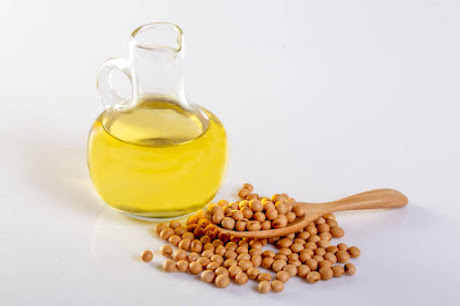Soybean oil is an ingredient that is widely used in almost every type of cuisine with different types and different flavors with various types of dishes. Although it is known for its diverse cooking purposes, its health benefits must not be ignored. Its main health benefits include reducing the risk of high blood pressure, cardiovascular disease, diabetes / metabolic syndrome, and Alzheimer's, while the aging process prolongs life expectancy.
Hypertension is a condition characterized by high blood pressure, usually as a result of a diet high in saturated fat. Soybean oil lowers blood pressure with unsaturated fats such as monounsaturated fatty acids and polyunsaturated fatty acids in fish and vegetable oils, which neutralize saturated fats with antioxidant components such as polyphenols. These qualities have been proven in studies in Italy where high blood pressure patients who consume 40 grams of Healthy Soybean oil every day reduce their blood pressure by about 50%, so that half of them can lower their blood pressure or stop dosing. They fully accept it.
Soybean oil not only reduces the risk of high blood pressure and cardiovascular disease, but also reduces complications of type 2 diabetes and metabolic syndrome. Inflammation is a common symptom of this condition, and the components of polyphenols and squalene have anti-inflammatory properties to eliminate these symptoms. These anti-inflammatory properties can also reduce the risk of Alzheimer's disease, which is partly caused by inflammation of brain cells and leads to neurode generation. Another way that can help Soybean oil with type 2 diabetes is to control blood sugar. This is done by separating the space from carbohydrates and simple sugars to reduce their effect on insulin levels.
The same components that have been shown to reduce the risk of cardiovascular disease, stroke, and Alzheimer's also help slow the aging process and prolong life. Our body contains free radicals that attack body cells and damage the DNA in them. Soybean oil helps reduce cell and DNA damage by limiting per oxidation or loss of free radicals. This will help reduce the effects of aging and keep cells free of radical-free active ingredients to maintain vitality and stay young.
Soybean oil is more than just a universal cooking medium. Also contains several components that improve health. These health benefits include reducing the risk of diseases such as cardiovascular disease, stroke, and Alzheimer's, and relieving symptoms of diabetes, high blood pressure, and aging. By making Soybean oil an integral part of your diet, you can experience the many health benefits it offers.
In conclusion, the remarkable flexibility of soybean oil extends well beyond its role as a culinary staple. While it is indeed a versatile cooking medium, its often-overlooked health benefits deserve attention and appreciation. From reducing the risk of high blood pressure, cardiovascular disease, and metabolic syndrome to offering potential protection against Alzheimer's disease, soybean oil has shown its prowess in promoting overall well-being.
The research-backed evidence of its positive impact on hypertension is particularly compelling, as it highlights how incorporating healthy soybean oil into our daily diet can lead to substantial reductions in blood pressure levels. Additionally, its anti-inflammatory properties and blood sugar control abilities make it a valuable ally in managing type 2 diabetes and associated complications.
Furthermore, soybean oil's antioxidant properties combat the effects of free radicals, slowing down the aging process and contributing to a longer, healthier life. By making soybean oil a consistent part of your dietary choices, you can harness these health benefits while continuing to savor its culinary versatility. So, remember that soybean oil is not just a cooking ingredient; it's a health-enhancing addition to your lifestyle.
View Source :- https://360oilbenefits.mystrikingly.com/blog/the-flexibility-of-soybean-oil-extends-to-health-benefits
For more information: https://www.gulaboils.com/


Comments
Post a Comment